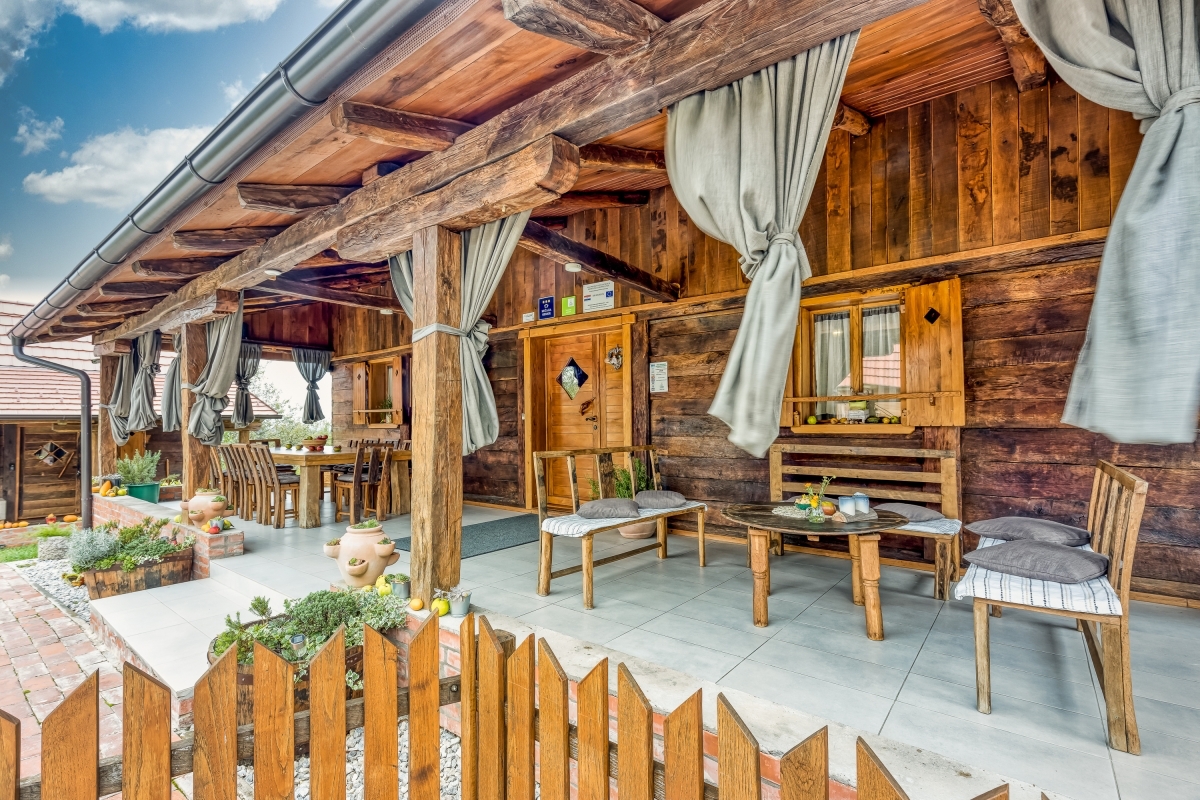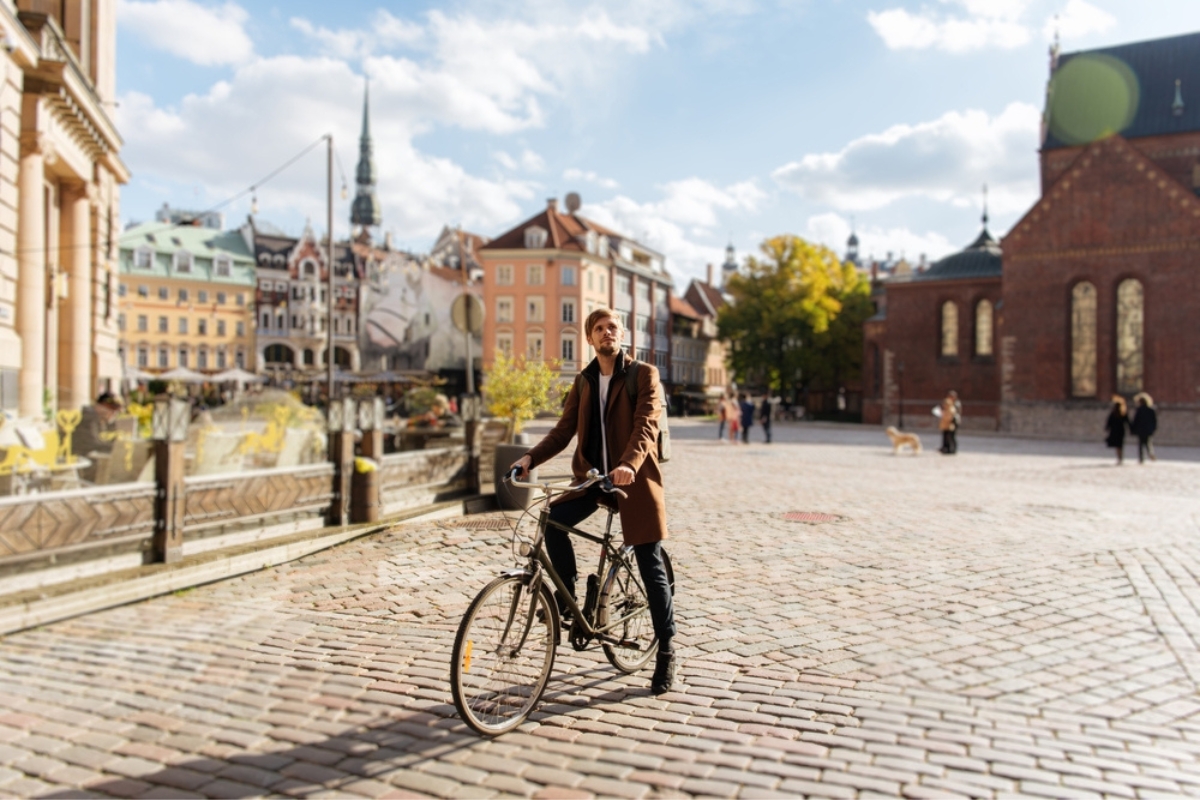How to have an eco-friendly vacation? Here’s our tips
Blog Published: December, 06 2023 (Updated On: September, 16 2024)Embarking on a journey of sustainable travel isn't just a trend; it's a responsibility. As the world becomes more conscious of its ecological footprint, the way we vacation is evolving. So, how can you indulge your wanderlust while treading lightly on the planet?
Join us on a journey through the lush landscapes of eco-friendly travel, where conscious choices meet unforgettable adventures. In this guide, we unveil the secrets to crafting an environmentally responsible vacation that leaves only footprints in the sand and memories in your heart.
 Discover what to do to have a sustainable vacation
Discover what to do to have a sustainable vacation
From choosing green accommodations to savoring local flavors, get ready to explore the world sustainably with our curated tips for an eco-friendly escape. Let the adventure begin, and let the planet thank you later!
But first...
What is sustainable traveling?
“Sustainable travelling” or “sustainable tourism” is about finding a balance between economic growth, human well-being, and environmental health. It aims to reduce the negative impacts of tourism while maximizing its positive effects on communities, cultures, ecosystems, and the planet. It considers both immediate and long-term impacts, including those on future generations.
 Enjoy the beauty of the mountains for your next eco-friendly travel
Enjoy the beauty of the mountains for your next eco-friendly travel
Other related terms like "ecotourism," "regenerative travel," "community-based tourism," "ethical travel," or "nature-tourism" often have narrower focuses or specific applications within the broader concept of sustainable tourism. For example, ecotourism emphasizes responsible travel to natural areas, while regenerative travel seeks to improve and repair places that have been impacted by tourism.
How can I be 100% eco-friendly?
Here’s what you can do to have an eco-friendly vacation and start travelling more sustainably:
1. Select an appropriate destination
When selecting your holiday destination, consider the environmental impact of your travel. Opt for destinations closer to home or accessible by eco-friendly transport to minimize emissions. Explore eco-tourism options that support sustainable development, avoid negative environmental impact, and contribute to local communities.
 Choose the train as an eco-friendly transportation option by selecting a destination easily reachable
Choose the train as an eco-friendly transportation option by selecting a destination easily reachable
You can also avoid overtourism by steering clear of popular tourist spots and exploring off-the-beaten-path destinations. While famous places might be alluring, they often don't match the hype online and can be crowded and disappointing. Opting for lesser-known locations can provide more fulfilling and authentic experiences, steering clear of long lines and overcrowded attractions. If you are dying to go to a popular destination, consider scheduling your trip during the off-season. Have a look at our uncrowded destinations for winter and summer.
2. Slow down and stay awhile
Embracing a slower pace while traveling can enhance your experience and the well-being of the destinations you visit. Instead of rushing from place to place, consider longer stays in one area. This allows for a deeper immersion in the culture, fostering genuine connections with locals and discovering unique aspects of the location. Engaging in activities like local cooking classes, leisurely walks, and museum visits provides richer, more meaningful travel experiences. Not only does slow travel benefit the environment by reducing carbon emissions, but it also supports local businesses and alleviates pressure on the cities and communities visited.
 Take some time for yourself by staying in an eco-friendly holiday home with all the comforts like Eco House Lina with its own organic orchard and vegetable garden
Take some time for yourself by staying in an eco-friendly holiday home with all the comforts like Eco House Lina with its own organic orchard and vegetable garden
3.Travel green: use Public Transportation
When getting to your destination, prioritize the most environmentally friendly transportation. Consider taking the train instead of flying, particularly for short distances (< 500 km). If flying is unavoidable, choose airlines with higher occupancy rates and more fuel-efficient aircraft to minimize your environmental impact. Once you’re in your destination, consider taking the bus, traveling by rail, or cycling around town instead of renting a car. If you do rent a car, opt for an electric, hybrid, or smaller model.
 Once in the place, renting a bike is one of the most sustainable options
Once in the place, renting a bike is one of the most sustainable options
4.Choose sustainable accommodation
When selecting accommodation, opt for environmentally friendly options. Look for places with efficient waste treatment, recycling practices, energy efficiency, and consider those using eco-friendly energy sources like solar or hydroelectric power.
 Happy.Rentals’ property Eco Finca Can Alegria with Pool ID 5775 powered with solar panels
Happy.Rentals’ property Eco Finca Can Alegria with Pool ID 5775 powered with solar panels
Discover ours eco-friendly accommodations!
5.Be a responsible guest by:
Packing light: The lighter your luggage, the less greenhouse gas will be generated on your flight, so just travel with a hand luggage if you can.
Respecting the local environment: Stay on designated paths, avoid removing plants or feeding animals, and refrain from littering. For more info have a look at the Leave No Trace Principles.
Choosing conservation-minded operators: Opt for reputable tour operators and suppliers with a commitment to conservation.
Conserving water and energy: Use showers instead of baths, carry a refillable water container, minimize personal care product use, and reuse hotel towels and bed linen. Be mindful of energy consumption, turning off lights, the AC and taps when leaving.
Proper waste disposal: Dispose of sanitary waste correctly, refraining from flushing items like cotton buds, condoms, tampons, and plastics down the toilet.
Recycling and reducing: Recycle newspapers, magazines, and beverage containers. Reduce the use of bags, napkins, and disposable cups when eating fast food and avoid single-use plastic.
Choosing eco-friendly transport: Opt for trains, buses, or bikes instead of renting a car. Embrace walking as a sustainable mode of transport.
Avoiding damaging recreational activities: Steer clear of sports or activities with significant environmental impact, or choose establishments that prioritize sustainability (e.g., golf courses that recycle water).
Keeping your money local: Supporting local economies is crucial for communities to recover from the impact of reduced tourism. To ensure the benefits stay within the community, prioritize local businesses, accommodations, and dining options. Choose locally owned homestays and restaurants, embracing traditional dishes made with local ingredients. Explore local markets and purchase items from local artisans. Opt for excursions led by local guides and consider learning local skills or crafts from experts.
 Support the local communities, buy local!
Support the local communities, buy local!
Respecting local communities: Begin by understanding the local culture, traditions, and etiquette before visiting. Learn a few phrases in the local language and be aware of gestures or words that might be offensive. When visiting religious or spiritual sites, adhere to the protocols and respect the rules, which might involve dress codes, removing shoes, or maintaining silence. Follow local laws, traffic regulations, and health and safety guidelines. Preserve the places you visit by leaving them as you found them. Show consideration and dignity to residents, respecting their privacy and seeking permission before taking photos.
6.Mind what you buy
When returning home, be mindful of souvenir choices. Avoid purchasing products made from endangered species such as animal hides, body parts, tortoiseshell, ivory, or coral, as they could be illegal.
In conclusion, embarking on an eco-friendly vacation isn't just about reducing our environmental impact—it's a holistic commitment to respecting local communities, embracing diverse cultures, and supporting the well-being of the places we visit. From choosing sustainable accommodations and transport to respecting local traditions and investing in the local economy, each choice we make can shape a more positive travel experience.
Would you like to plan a sustainable family trip? Check out these tips
Are you a homeowner and are you wondering how you can make your house sustainable? Here’s ours tips.






